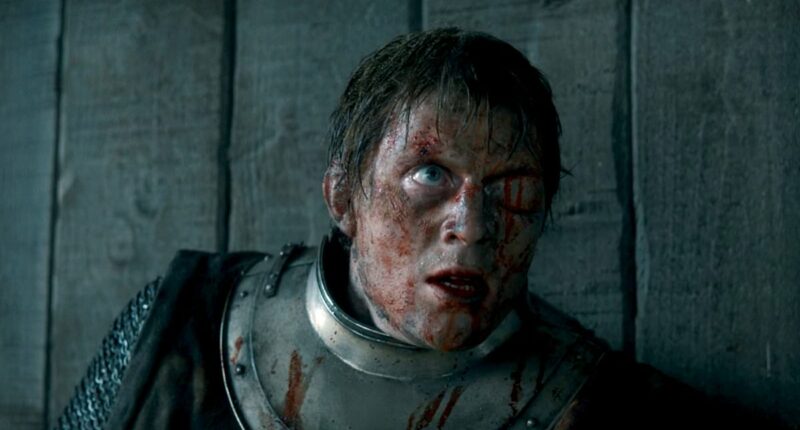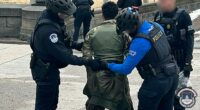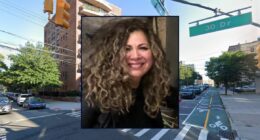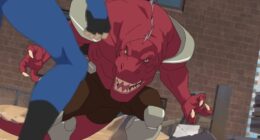Share this @internewscast.com

Fans of “A Knight Of The Seven Kingdoms” were heartbroken when a beloved character met a grim fate in the latest episode. Medical experts have now weighed in on whether he might have survived under different circumstances.
In the dramatic conclusion of Sunday’s episode of the “Game of Thrones” spin-off, Prince Baelor ‘Breakspear’ Targaryen suffered a fatal injury during a trial-by-combat. His brother Maeker delivered a devastating blow to Baelor’s head with a mace, setting the tragic events in motion.
Despite the severe injury, Baelor managed to continue fighting initially. However, once the combat ended, he began showing alarming symptoms, slurring his speech and appearing disoriented.
“My fingers… fingers feel like wood,” he mumbled, struggling to communicate as he asked for assistance in removing his helmet, which had been battered and deformed by the attack.
When the helmet was finally taken off, the extent of the damage was revealed: a gruesome wound exposed the back of Baelor’s skull, with his brain visibly affected. Moments later, he crumpled to the ground, succumbing to his injuries in the arms of Duncan, the central character of the series.
Fans quickly took to social media to express their sorrow and discuss the shocking development, speculating whether Baelor’s fate could have been different with prompt medical intervention. Meanwhile, medical professionals consulted by the Daily Mail have shared their perspectives on the matter.
Dr David Shapiro, a trauma surgeon at Hartford Healthcare in Connecticut and fan of the show, said Baelor was a dead man walking as soon as he was struck.
‘A blow sustained like that is a killing blow in any setting. Even with modern helmets, a blow that deforms the helmet still impacts the skull, resulting in an injury to the brain,’ he told the Daily Mail.
‘When we see the back of his head after the helmet is removed, clearly he has a crush injury,’ Shapiro said.
He explained that even without direct trauma to Baelor’s brain tissue, the massive damage to his skull would cause internal bleeding that would eventually put lethal pressure on his brain.
The prince may also have suffered another injury to his spinal cord, which could impede blood flow to the brain and cause the dizziness he was feeling.
Baelor was able to survive long enough to finish the trial and stagger off the field to his comrades, as patients often continue functioning for a while until bleeding builds up inside the skull and causes enough pressure on the brain.
‘He is a strong, virile knight, with a good constitution and the adrenaline going through his body during a fight, [which] may have kept him standing and functional until the point of collapse,’ Shapiro said.
‘I’ve seen people dripping blood and brains for 20 to 25 minutes reach my trauma room but yet still able to express themselves for a short while before succumbing.’
As Shapiro notes, this is due to adrenaline, a hormone secreted by the adrenal glands as a stress response, acting as the body’s ‘fight-or-flight’ driver.
This redirects the body’s focus and blocks pain signals to focus on surviving, also temporarily boosting energy and strength.
Baelor’s helmet also bought him time as it acted as a splint to hold his skull together and decreased the rate of bleeding.
‘When the helmet is released, the bleeding starts steadily, causing a significant increase in pressure on the brain, likely the brainstem, resulting in pressure on the brainstem, eliminating consciousness,’ Shapiro explained.
‘The lightheadedness he apparently experiences is explained by this.’
Viewers posting on social media also wondered if Baelor could have survived if his helmet wasn’t removed and he was given careful medical treatment, which would have been challenging given the show’s setting.
But Shapiro said the injury was so severe he would only have survived a matter of minutes no matter what was done.
‘This injury, in that age, was not survivable even with measures taken then. The helmet didn’t save him, just delayed the inevitable,’ he said.
‘If the helmet was left on indefinitely, he’d have the same thing happen.’
The mistake that likely cost Baelor his life was borrowing his son’s armor as he, not expecting to be involved in a fight, didn’t bring his own. This meant the helmet was a little too small and the steel was weaker than his own.
Shapiro said a too-small helmet could have further reduced blood flow from his head, increasing pressure on the brain along with the pressure drop when it was removed.
Had Baelor used his own, stronger, helmet, the damage may have been less severe, such as an open fracture without brain injury that in a modern hospital could be fixed with surgical repair and a metal plate.
Even less serious injuries like a closed skull fracture, a smaller brain bleed, or a mild to moderate traumatic brain injury, could be survivable in the Games of Thrones universe.
But with the wound he suffered on the show, Baelor would have a very slim chance of of survival even if he was rushed to a modern emergency room with his helmet still in place.
‘Modern treatment says to leave helmets in place, but this is so the neck isn’t manipulated in the setting of head and neck injuries,’ Shapiro said.
Doctors in a modern setting would drain the blood with a tube to decrease pressure on the brain and elevate the fracture to slow the bleeding.
They would also need to treat any ‘secondary injuries’ to the brain caused by reduced oxygen or poor blood flow such as a stroke.
Dr Jeremy Liff, a neurologist at Northwell Lenox Hill in New York City, said getting a patient into surgery fast greatly improves their odds.
‘We have the ability if a patient is gotten to soon enough to do emergency neurosurgery and drain the hematoma which has collected,’ he told the Daily Mail.
‘But it’s a matter of time, if you don’t get there fast enough of the pressure that’s getting put onto the vital structures of the brain can cause death very quickly.’
Whether Baelor could survive in an ideal modern medical scenario would depend on the amount of direct damage to his brain, which is unclear in the scene.
But as is the case with fantasy television, much is possible.












